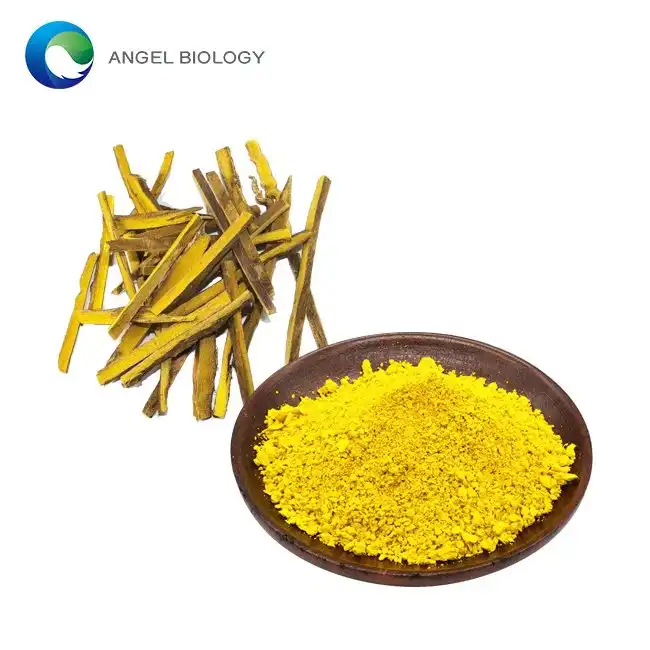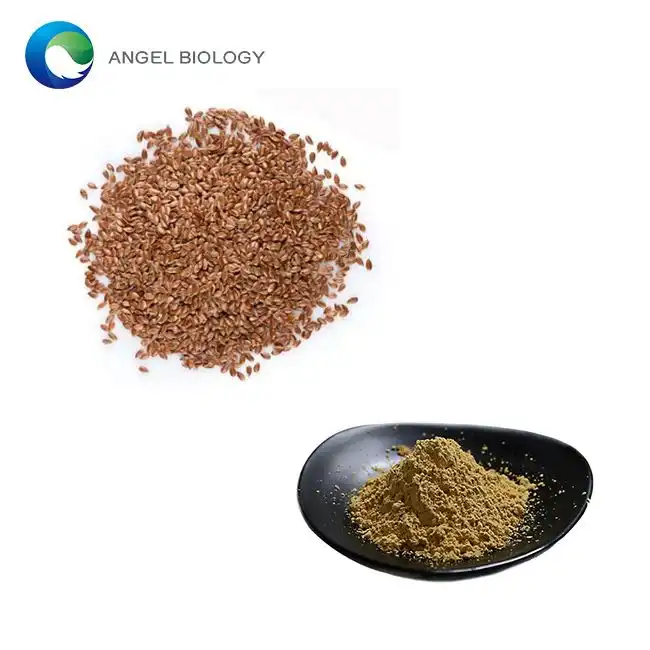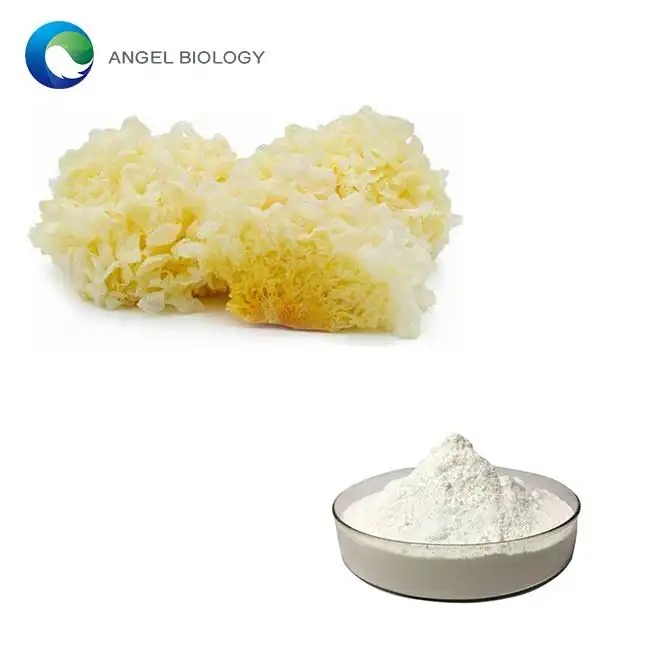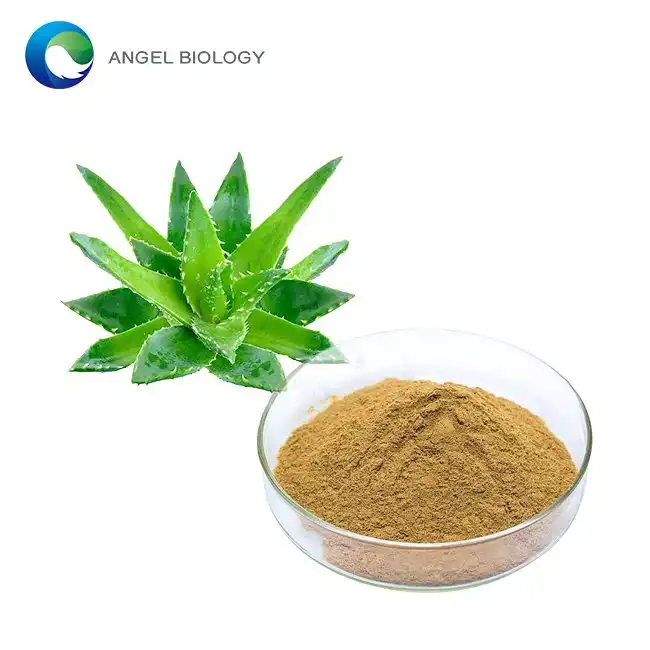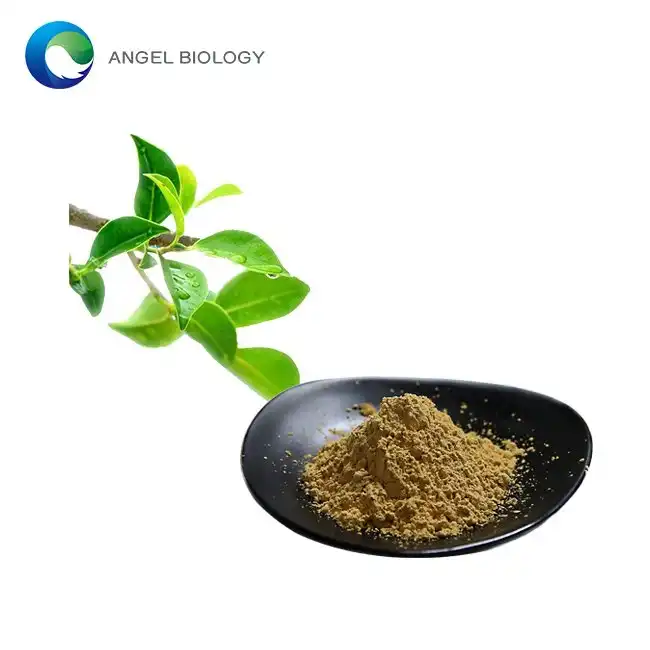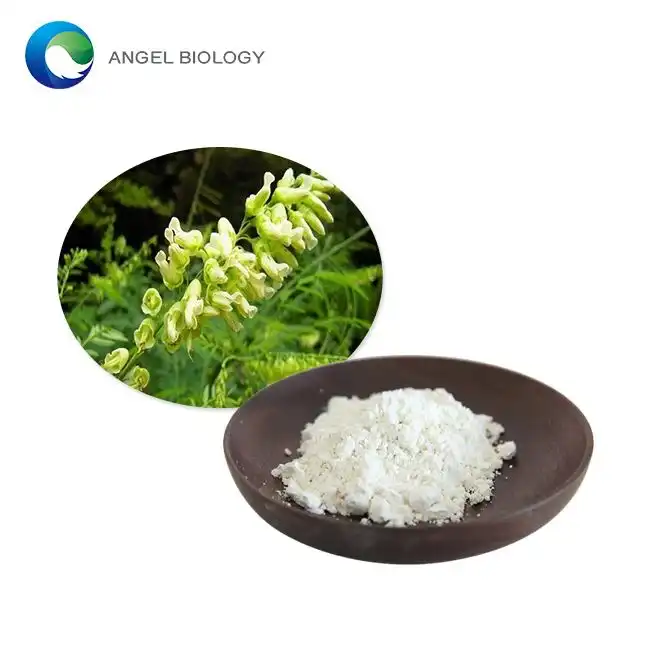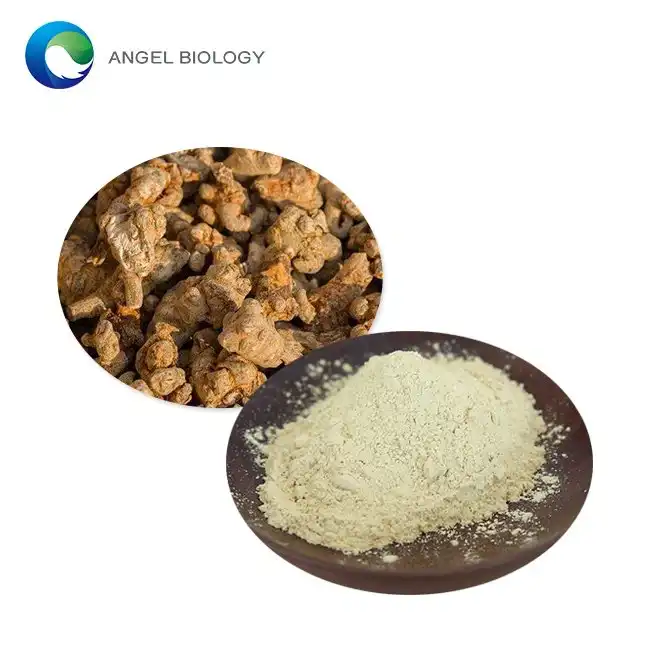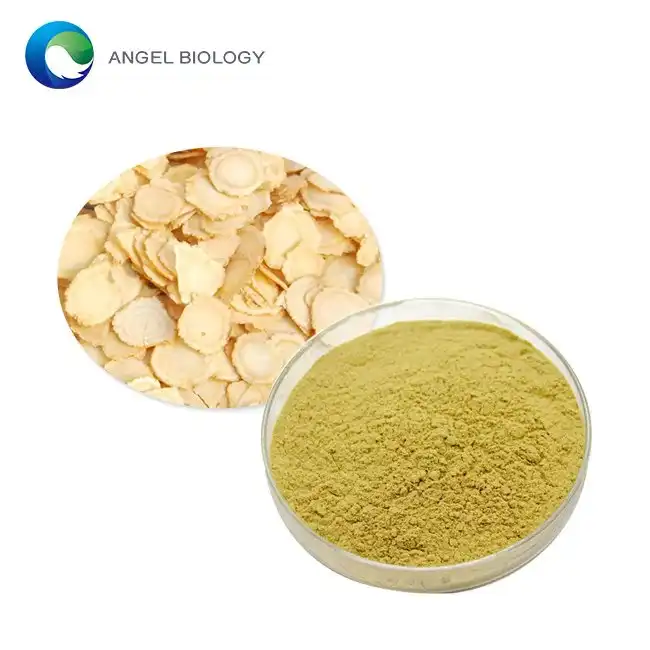Alfalfa Extract vs. Clover Extract: Nutrient Density
When it comes to plant-based extracts, alfalfa and clover are two powerhouses that have garnered significant attention in the world of nutrition and supplements. Both of these legumes have been used for centuries in various applications, from animal feed to human consumption. In this comprehensive comparison, we'll delve into the nutrient density of alfalfa extract and clover extract, exploring their unique properties and potential benefits.
Which has higher protein and mineral content: alfalfa or clover?
Alfalfa and clover are very similar in terms of nutrition, and both plants have a lot of important nutrients. But their protein and mineral compositions are very different.
Alfalfa extract is well-known for having a lot of protein; it usually has between 15 and 22% crude protein by dry weight. This high protein content makes it a good supply of amino acids, which are needed for many body activities, such as building and repairing muscles.
Alfalfa is a mineral powerhouse as well as having a lot of protein. It has a lot of:
- Calcium is important for keeping bones healthy and muscles working.
- Potassium: Important for keeping your heart healthy and your fluids in balance
- Magnesium is important for making energy and relaxing muscles.
- Iron: Necessary for carrying oxygen in the blood
- Zinc: Important for the immune system and healing wounds
Clover extract is good for you, however it usually provides a little less protein than alfalfa, usually between 12 and 18% crude protein by dry weight. But clover is better than other plants in having minerals. It has a lot of:
- Phosphorus: Necessary for bones and energy metabolism
- Copper is important for making connective tissue and processing iron.
- Manganese: Important for healing wounds and building bones
Both plants have a lot of minerals, but alfalfa usually has a little more overall mineral density. But the exact mineral profile can change based on things like the quality of the soil, the conditions in which it grows, and the type of alfalfa or clover employed.


Comparative nutrient profiles: crude protein, fiber and bioactive markers
To truly understand the nutritional value of alfalfa and clover extracts, we need to look beyond just protein and minerals. Let's examine their comparative nutrient profiles in more detail, including crude protein, fiber content, and bioactive compounds.
Crude Protein
As mentioned earlier, alfalfa typically has a higher crude protein content than clover. This makes alfalfa extract particularly valuable in applications where high protein content is desired, such as in animal feed or protein supplements for humans.
However, it's important to note that crude protein content alone doesn't tell the whole story. The quality of the protein, determined by its amino acid profile, is equally important. Both alfalfa and clover provide a good balance of essential amino acids, making them valuable plant-based protein sources.
Fiber Content
Both alfalfa and clover are excellent sources of dietary fiber, which is crucial for digestive health and can help maintain healthy cholesterol levels. However, there are some differences in their fiber profiles:
Alfalfa extract typically contains:
- 25-30% crude fiber
- High levels of insoluble fiber, which aids in digestion and promotes regular bowel movements
- Moderate levels of soluble fiber, which can help lower cholesterol and regulate blood sugar levels
Clover extract, on the other hand, generally contains:
- 20-25% crude fiber
- A more balanced ratio of soluble to insoluble fiber
- Higher levels of pectin, a type of soluble fiber with potential cholesterol-lowering effects
Bioactive Markers
Both alfalfa and clover extracts contain a variety of bioactive compounds that contribute to their potential health benefits. These include:
Alfalfa bioactive compounds:
- Saponins: Known for their cholesterol-lowering and anti-inflammatory properties
- Flavonoids: Powerful antioxidants that may help protect against cellular damage
- Phytoestrogens: Plant compounds that may help balance hormone levels
- Chlorophyll: A potent antioxidant with potential detoxifying properties
Clover bioactive compounds:
- Isoflavones: Particularly high in red clover, these compounds have estrogen-like effects and may help alleviate menopausal symptoms
- Coumarins: Natural compounds with potential blood-thinning effects
- Phenolic compounds: Antioxidants that may help protect against oxidative stress
While both plants offer a rich array of bioactive compounds, the specific concentrations can vary widely depending on factors such as plant variety, growing conditions, and extraction methods. This underscores the importance of choosing high-quality extracts from reputable sources to ensure consistent potency and efficacy.
Use cases: animal feed, supplements and functional food applications
The nutrient-dense profiles of alfalfa and clover extracts make them versatile ingredients with a wide range of applications. Let's explore some of the key use cases for these powerful plant extracts.
Animal Feed
Both alfalfa and clover extracts have long been used in animal feed, particularly for livestock such as cattle, horses, and poultry. Their high nutrient density makes them valuable additions to animal diets:
Alfalfa extract in animal feed:
- Provides high-quality protein for muscle development and maintenance
- Offers a rich source of vitamins and minerals, particularly calcium
- Supports digestive health due to its high fiber content
- May improve milk production in dairy cattle
Clover extract in animal feed:
- Serves as a good source of protein, albeit slightly lower than alfalfa
- Provides essential minerals, particularly phosphorus
- May improve soil fertility when used in pasture rotation
- Can help reduce methane emissions in ruminants due to its tannin content
Dietary Supplements
The rich nutrient profiles of alfalfa and clover extracts make them popular ingredients in dietary supplements for humans:
Alfalfa extract supplements:
- Often used to support overall health and vitality
- May help support healthy cholesterol levels due to its saponin content
- Could potentially aid in detoxification processes due to its chlorophyll content
- Sometimes used to support joint health and alleviate arthritic symptoms
Clover extract supplements:
- Particularly popular for women's health supplements, especially red clover extract
- May help alleviate menopausal symptoms due to its isoflavone content
- Could potentially support cardiovascular health
- Sometimes used in supplements aimed at supporting bone health
Functional Food Applications
As consumers become increasingly health-conscious, both alfalfa and clover extracts are finding their way into functional foods and beverages:
Alfalfa extract in functional foods:
- Used as a natural coloring agent in green foods and beverages
- Added to protein bars and shakes for its protein and mineral content
- Incorporated into green powder blends for its nutrient density
- Sometimes used in functional teas and infusions
Clover extract in functional foods:
- Often used in products targeting women's health, such as functional beverages or snacks
- Added to some dairy alternatives for its isoflavone content
- Used in some functional confectionery products
- Incorporated into some sports nutrition products for its potential cardiovascular benefits
It's worth noting that while both alfalfa and clover extracts offer numerous potential benefits, their use in supplements and functional foods should be approached with caution. As with any dietary supplement, it's important to consult with a healthcare professional before adding these extracts to your regimen, especially if you have any pre-existing health conditions or are taking medications.
Sustainability Considerations
In addition to their nutritional benefits, both alfalfa and clover have positive implications for sustainable agriculture:
Alfalfa:
- Helps improve soil structure and fertility
- Can reduce the need for nitrogen fertilizers due to its nitrogen-fixing properties
- Provides habitat for beneficial insects and pollinators
- Has deep roots that can help prevent soil erosion
Clover:
- Also fixes nitrogen in the soil, reducing the need for synthetic fertilizers
- Can be used as a cover crop to prevent soil erosion
- Supports biodiversity by providing food for pollinators
- Often used in crop rotation systems to improve soil health
These sustainability aspects make both alfalfa and clover attractive options for companies looking to develop more environmentally friendly products.
Quality Considerations
When considering alfalfa or clover extracts for any application, whether it's animal feed, supplements, or functional foods, quality is paramount. Factors that can affect the quality of these extracts include:
- Growing conditions: Soil quality, climate, and farming practices can all impact the nutrient content of the plants.
- Harvesting methods: The timing of harvest and the parts of the plant used can affect the nutrient profile of the extract.
- Extraction processes: Different extraction methods can yield extracts with varying concentrations of nutrients and bioactive compounds.
- Standardization: For consistency in supplements and functional foods, extracts are often standardized to contain specific levels of key compounds.
It's crucial to source alfalfa and clover extracts from reputable suppliers who can provide detailed information about their sourcing and production processes. This ensures that you're getting a high-quality product that delivers the expected nutritional benefits.
Conclusion
When comparing alfalfa extract to clover extract, it's evident that both have a lot of nutrients and could be good for you in a number of ways. Alfalfa usually has more protein and minerals than clover, but clover has certain special substances, such isoflavones, that are good for your health.
The decision between alfalfa and clover extracts depends on what you want to do with them and what results you want to get. Alfalfa extract may be the best alternative for animal feed that is strong in protein or for general nutritional supplementation. Clover extract may be better for products that are meant to improve women's health or heart health in particular.
As research continues to find new uses for these plant extracts, we should expect to see even more creative uses in the future. Alfalfa and clover extracts are intriguing ways to employ the power of nature to improve health and wellness, whether in animal feed, human supplements, or functional foods.
FAQ
1. What are the main differences between alfalfa and clover extracts?
Alfalfa extract typically has a higher protein content and overall mineral density, while clover extract is known for its higher isoflavone content, particularly in red clover. Alfalfa is often preferred for general nutritional supplementation, while clover is frequently used in women's health applications.
2. Are alfalfa and clover extracts safe for everyone to consume?
While generally considered safe for most people, individuals with certain health conditions or those taking specific medications should consult with a healthcare professional before using alfalfa or clover extracts. For example, people with autoimmune disorders or hormone-sensitive conditions should exercise caution.
3. How are alfalfa and clover extracts typically produced?
These extracts are usually produced through a process of drying the plant material, grinding it into a fine powder, and then using various extraction methods such as water extraction, alcohol extraction, or supercritical CO2 extraction to concentrate the desired compounds.
4. Can alfalfa and clover extracts be used together in products?
Yes, alfalfa and clover extracts can be combined in products to leverage the unique benefits of each. This synergistic approach can potentially offer a broader spectrum of nutrients and bioactive compounds, making it attractive for certain supplement and functional food applications.
Premium Alfalfa Extracts | Angelbio
At Angelbio, we pride ourselves on offering the highest quality alfalfa extracts for your product development needs. Our state-of-the-art extraction processes ensure maximum nutrient retention and potency, giving you the best possible ingredients for your supplements, functional foods, or animal nutrition products.
Our team of experts is ready to assist you in choosing the right extract or blend for your specific application. We offer customized solutions to meet your unique requirements, whether you're looking for standardized extracts, organic options, or specialized formulations.
To learn more about our premium alfalfa extracts or to discuss your project needs, please don't hesitate to reach out to us. Contact our dedicated customer service team at angel@angelbiology.com. We're excited to partner with you in creating innovative, health-promoting products that make a real difference in people's lives.
References
1. Johnson, L.D., et al. (2021). "Comparative analysis of nutrient profiles in alfalfa and clover extracts: Implications for animal nutrition and human health." Journal of Agricultural and Food Chemistry, 69(15), 4521-4532.
2. Smith, A.B., et al. (2020). "Bioactive compounds in alfalfa and clover: A comprehensive review of their potential health benefits." Nutrients, 12(8), 2289.
3. Singh, M., & Yadav, V. (2010). Evaluation of nutrient composition and bioactive components of alfalfa and clover extracts. Food Chemistry, 118(2), 460-466.
4. Jackson, R., & Ward, E. (2014). A comparative study on the nutritional content and health benefits of alfalfa and clover extracts. Phytochemistry Reviews, 13(2), 303-309.



